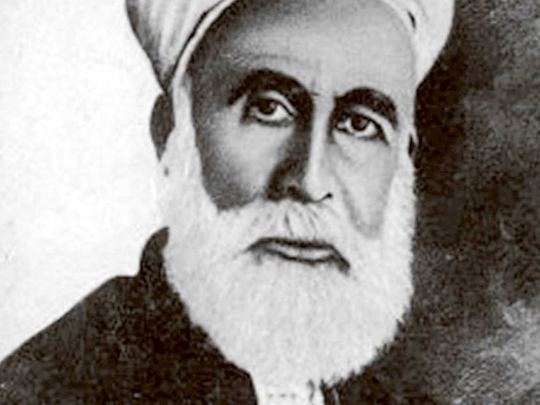
Of all the Arab countries that were created following the secret colonial understanding between Great Britain and France in 1916, better known as the Sykes-Picot Agreement, Jordan is the only country that can claim to offer a counter historical narrative.
It was also 100 years ago that Sharif Hussain Bin Ali, Emir of Makkah and great grandfather of present-day King Abdullah II, launched what became known as the Great Arab Revolt. Jordan is celebrating the centenary of this event. The British reneged on a promise to Hussain to carve out a unified Arab state in the Levant and Arabia following the First World War and the defeat of the Ottomans.
The Hashemite dynasty, which ruled Syria briefly in the 1920s; Iraq for about four decades, until the military coup of 1958; and Jordan from 1921 until today, derive their legitimacy from the Great Arab Revolt and the fact that they trace their lineage directly to Prophet Mohammad (PBUH). As political turmoil engulfed Syria and Iraq between the two great wars, the small emirate of Transjordan survived against all odds. Ruled by Hussain’s son Abdullah I, the emirate evolved from being a British protectorate into an independent kingdom in 1946.
King Abdullah I, who ruled until his assassination in 1951, set the foundations of an Arab state in the impoverished desert kingdom. He created an independent legislature, a small but disciplined army, and a budding democracy. In 1950 and following the great debacle in Palestine of 1948, he oversaw the unification of the East and West banks of Jordan.
His son King Talal ruled for a short time, but his most important achievement was the passing of a modern constitution in 1952, that underlined the separation of powers and defined the role of the monarchy. When he abdicated in 1952, his young son Hussain became king. It was to be a long and prosperous phase in the life of the kingdom. But the early days of his rule were marred by regional turmoil, the rise of Nasserism (linked to Egypt’s Jamal Abdul Nasser) and Arab-Israeli wars over Palestine.
Assassination attempts
King Hussain survived many assassination attempts during his early reign, in addition to threats to unseat him by his Arab neighbours. He forged a strong alliance with the US in the late 1950s, a bond that survives today. While his greatest regret, until his death, was the loss of East Jerusalem and the West Bank in the 1967 Arab-Israeli war, his 47-year-rule is viewed by the majority of Jordanians as the most thriving chapter in the kingdom’s history.
His relationship with the Palestinians and the Palestine question is a controversial one. He expelled the Palestine Liberation Organisation from Jordan in 1970 following a bloody civil war, and later in 1973 was forced to recognise it as the sole representative of the Palestinian people. But the bond between Jordan and the Palestinians, who make up a sizeable portion of the population, remains steadfast.
Hussain’s most important political achievement was to sign a peace treaty with Israel in 1994, ending decades of hostility but most importantly, burying the notion that Jordan was an alternative homeland for the Palestinians.
His death in 1999, after a bout with cancer, signalled a new chapter in the life of the kingdom. His son King Abdullah II proved critics wrong. He was not groomed to rule, but soon pushed on with his view of the course Jordan should take in the new millennium. While regional events have challenged the kingdom, he was able to oversee some political reforms under difficult geopolitical circumstances. Today, he has become instrumental in the fight against Daesh (the self-proclaimed Islamic State of Iraq and the Levant). And while pundits debate if the old Sykes-Picot borders will change again, Jordan appears immune to such scenarios — for now.
Osama Al Sharif is a journalist and political commentator based in Amman.








